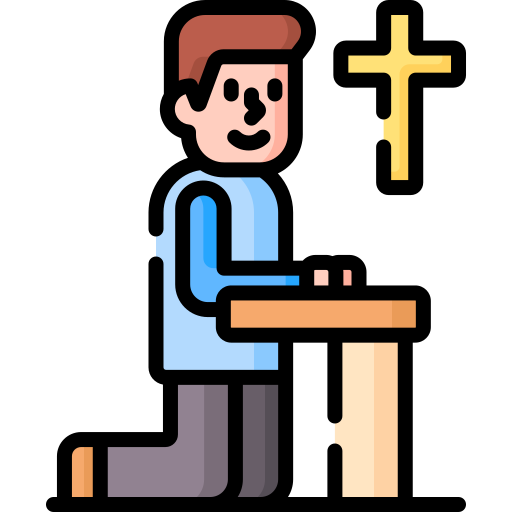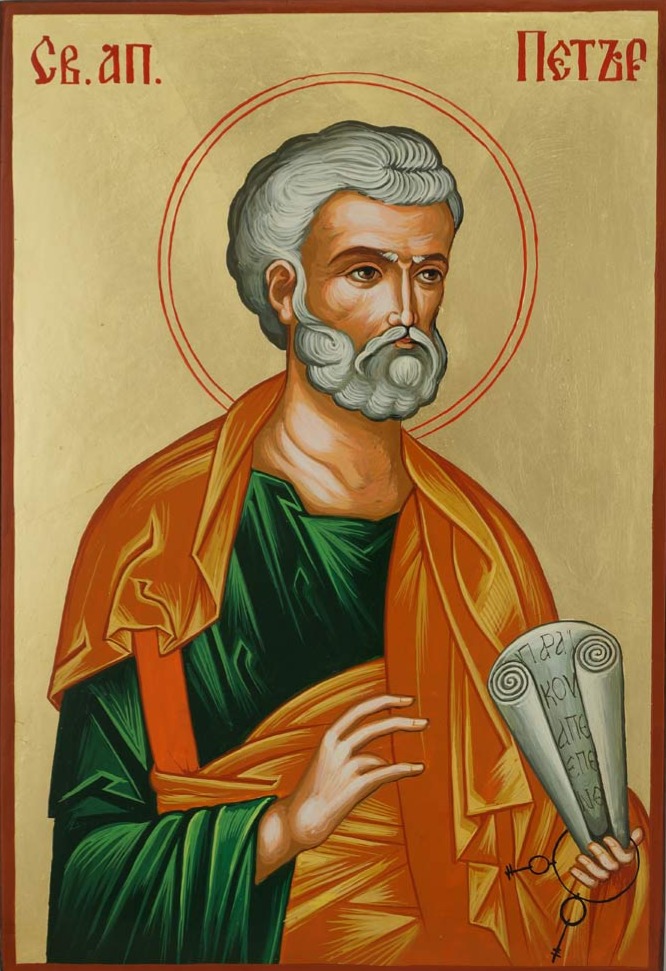6. Blessed bread and consecrated bread
Only Orthodox may take communion, but anyone may have some of the blessed bread. Here’s how it works: the round communion loaf, baked by a parishioner, is imprinted with a seal. In the preparation service before the Liturgy, the priest cuts out a section of the seal and sets it aside; it is called the "Lamb". The rest of the bread is cut up and placed in a large basket, and blessed by the priest.
During the eucharistic prayer, the Lamb is consecrated to be the Body of Christ, and the chalice of wine is consecrated as His Blood. Here’s the surprising part: the priest places the "Lamb" in the chalice with the wine. When we receive communion, we file up to the priest, standing and opening our mouths wide while he gives us a fragment of the wine-soaked bread from a golden spoon. He also prays over us, calling us by our first name or the saint-name which we chose when we were baptized or chrismated (received into the church by anointing with blessed oil).
As we file past the priest, we come to an altar boy holding the basket of blessed bread. People will take portions for themselves and for visitors and non-Orthodox friends around them. If someone hands you a piece of blessed bread, do not panic; it is not the eucharistic Body. It is a sign of fellowship.
Visitors are sometimes offended that they are not allowed to receive communion. Orthodox believe that receiving communion is broader than me-and-Jesus; it acknowledgesfaith in historic Orthodox doctrine, obedience to a particular Orthodox bishop, and a commitment to a particular Orthodox worshiping community. There’s nothing exclusive about this; everyone is invited to make this commitment to the Orthodox Church. But the Eucharist is the Church’s treasure, and it is reserved for those who have united themselves with the Church. An analogy could be to reserving marital relations until after the wedding.
We also handle the Eucharist with more gravity than many denominations do, further explaining why we guard it from common access. We believe it is truly the Body and Blood of Christ. We ourselves do not receive communion unless we are making regular confession of our sins to a priest and are at peace with other communicants. We fast from all food and drink–yes, even a morning cup of coffee–from midnight the night before communion.
This leads to the general topic of fasting. When newcomers learn of the Orthodox practice, their usual reaction is, "You must be kidding." We fast from meat, fish, dairy products, wine and olive oil nearly every Wednesday and Friday, and during four other periods during the year, the longest being Great Lent before Pascha (Easter). Altogether this adds up to nearly half the year. Here, as elsewhere, expect great variation. With the counsel of their priest, people decide to what extent they can keep these fasts, both physically and spiritually–attempting too much rigor too soon breeds frustration and defeat. Nobody’s fast is anyone else’s business. As St. John Chrysostom says in his beloved Paschal sermon, everyone is welcomed to the feast whether they fasted or not: "You sober and you heedless, honor the day…Rejoice today, both you who have fasted and you who have disregarded the fast."
The important point is that the fast is not rigid rules that you break at grave risk, nor is it a punishment for sin. Fasting is exercise to stretch and strengthen us, medicine for our souls’ health. In consultation with your priest as your spiritual doctor, you can arrive at a fasting schedule that will stretch but not break you. Next year you may be ready for more. In fact, as time goes by, and as they experience the camaraderieof fasting together with a loving community, most people discover they start relishing the challenge.






